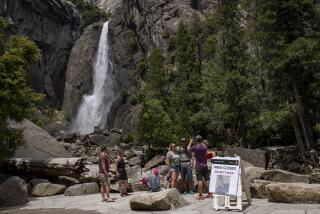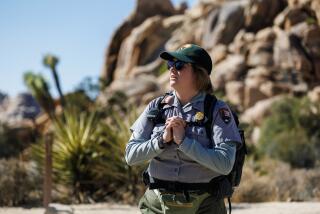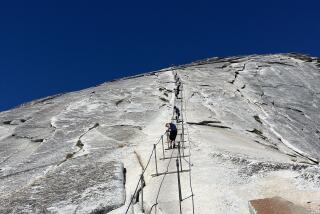Using, and Preserving, Yosemite
This has been a rough year for visitors to Yosemite National Park, which is the third most visited of the 54 national parks, after Great Smoky Mountains and Grand Canyon.
First, last winter’s heavy snows closed Tioga Pass until June 30. That kept the general store at Tuolumne Meadows shut until July 22 and the lodge there closed until July 26. So soggy are hiking and mule trails that the High Sierra camps for backpackers will not open at all this year. Gates to the more accessible Yosemite Valley have been closed during seven weekends, turning away about 9,000 vehicles.
Yosemite’s superintendent, B. J. Griffin, has proposed a reservation system for day visitors. Nearby communities fear that might discourage tourism, but if properly publicized, and if visitors are given alternative suggestions, such a system could reduce frustration for both visitors and park staff on busy weekends.
That still begs the question of how to reduce traffic and creeping urbanization in the park, which last year had 4.1 million visitors, 527 motor vehicle accidents, 660 arrests and 17 fatalities. The goal of barring private vehicles from the valley--long sought in some quarters--has never met with much acceptance.
The reservation system is promising. A new proposal to build an 1,800-place parking lot on the western edge of the valley and to shuttle visitors to hotels and other sites is more controversial. The Park Service must soon come to a conclusive, enforceable decision on how both to preserve access to the park and protect its natural assets.
More to Read
Sign up for The Wild
We’ll help you find the best places to hike, bike and run, as well as the perfect silent spots for meditation and yoga.
You may occasionally receive promotional content from the Los Angeles Times.






